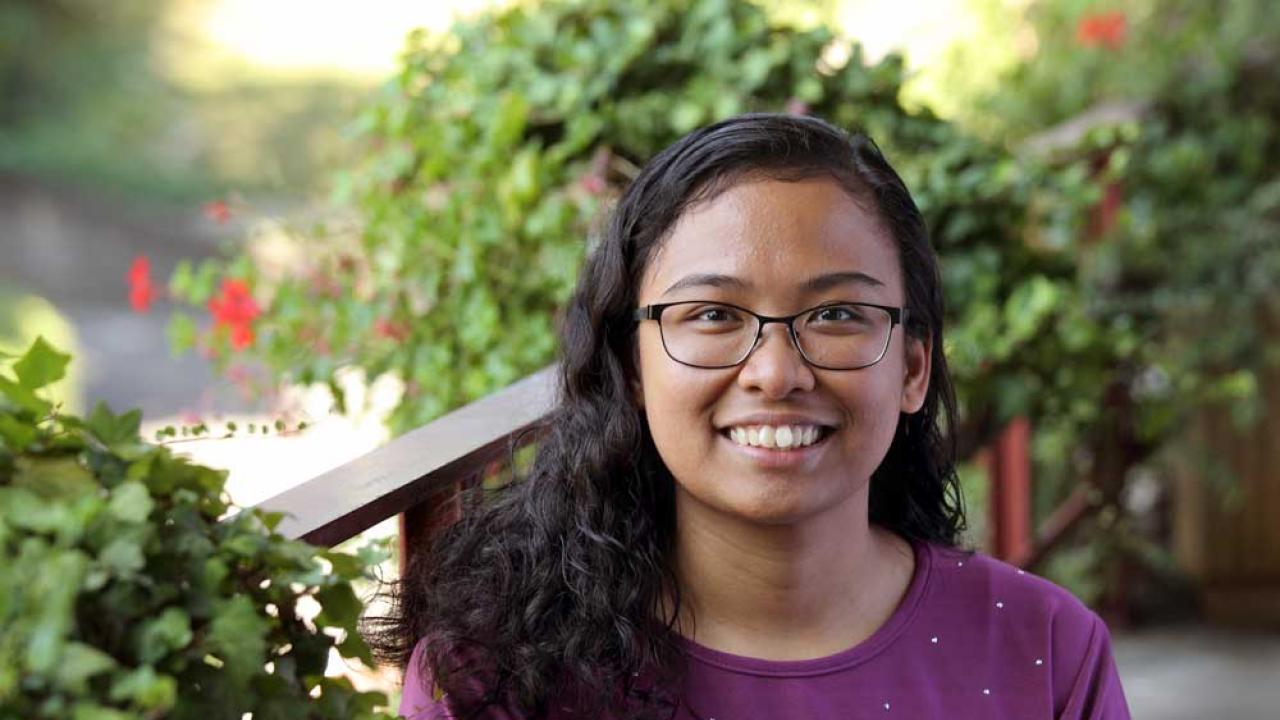
The life of a young scientist can sometimes resemble the highs and lows of a rollercoaster ride. But Nica Jane Ferrer, a student from Silang, Cavite, in the Philippines, has passion and will enough to overcome any obstacle in her way to science success. Working hard and being curious about science are some of her more evident skills, and having many mentors to learn and take inspiration from helped her get where she is now. These strengths accompanied her also during the past year while she was attending ICTP's Postgraduate Diploma Programme in the field of Condensed Matter Physics.
Ferrer chose the ICTP programme after reading an article about a fellow Filipino and Diploma alumna. “My life changed with this article,” she said, referring to the story about Dr. Cristine Villagonzalo, who graduated from the Diploma Programme in 1997 and is now a full professor at the National Institute of Physics in the University of the Philippines.
“This is really what inspired me to apply for the Diploma,” said Ferrer, “because I realized that I shared the same goal that Dr. Villagonzalo had, as she also wanted to be a teacher ever since she was a child. And I could just relate to her.”
Ferrer’s work focuses on theoretical material science, studying the magnetic properties of materials that could be applied in cutting edge electronic devices in the field of spintronics.
Spintronics, a contraction of the words ‘spin transport electronics’, essentially differs from traditional electronics in that it considers the electron spin, in addition to the electron charge, as an additional fundamental property of materials. Ferrer has now successfully defended her Diploma thesis in which she studied the unusual properties of a two-dimensional material called platinum diselenide, that consists of very thin layers of platinum and selenium. She investigated how the spin-texture can be controlled by external parameters.
“I feel very fortunate for being able to work with my adviser, Natasa Stojic, because she is an expert in two-dimensional materials,” said Ferrer, “so she is the best person from whom to learn, and I greatly admire her.” Dr. Stojic is but one of the many role models that Ferrer mentions, with a broad smile.
“I was often insecure in the past, because I am young, and I am a woman, and women are rare in physics. But then I look up at all these great women who are such a huge inspiration to me, like Dr. Villagonzalo, Dr. Stojic, or Mildred Dresselhaus, one of the pioneers in the study of allotropes of carbon and the first woman to have the title of ‘institute professor’ at MIT,” said Ferrer. “It feels very empowering and I want to put all my efforts into becoming as good a scientist as them in the future.”
Her home country of the Philippines is probably one of the few nations in the world in which the gender gap in research is almost nonexistent. Indeed, according to the 2015 UNESCO Science Report, women constitute 52.3% of researchers in the Philippines, as of 2007. Moreover, the Report shows that the number of students enrolled in university has almost doubled over the last ten years in the Philippines, but the number of researchers still remains low compared to the world average. Due to the frequency of extreme weather and geological phenomena in the country, scientific research is mainly focused on disaster risk and prevention; fundamental and theoretical sciences, like what Ferrer is specialising in, are not yet fully flourishing.
Ferrer has been inspired by her teachers and mentors since she was in elementary school, when her enthusiasm for science and especially math was already clear. Her primary school teachers encouraged her and her schoolmates to engage in math competitions. “We used to stay at school until 8 pm, or even on Saturdays, to review, if necessary,” she recalled. “My mother would come and bring us hot chocolate, bread or coffee, just to keep us warm while we were studying.”
Ferrer has maintained her strong work ethic, and her efforts are starting to pay off. She has been accepted for a PhD in physics at Northeastern University in Boston, Massachusetts, USA. “I am extremely grateful to everyone at ICTP, and especially to my advisers and professors. I would have never been able to do a PhD in the USA without them,” said Ferrer. “We were so fortunate to be here because our lecturers are among the top researchers in their respective fields,” she added, “and yet they chose to spend some of their time with us, students from developing countries, to help us improve and get a very good training to become good scientists.”
Ferrer is full of gratitude and respect for all the people who guided her in her academic and personal path. “Just like them, I want to make a difference through teaching and doing research in the future, and inspire new students to enjoy the journey, because by loving what you do, everything will follow,” said Ferrer. “You are the author of your story, so continue writing and never forget the people who helped you throughout your journey. As they say, pay it forward.”
---- Marina Menga
















